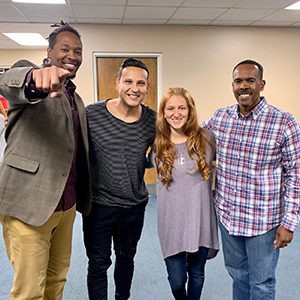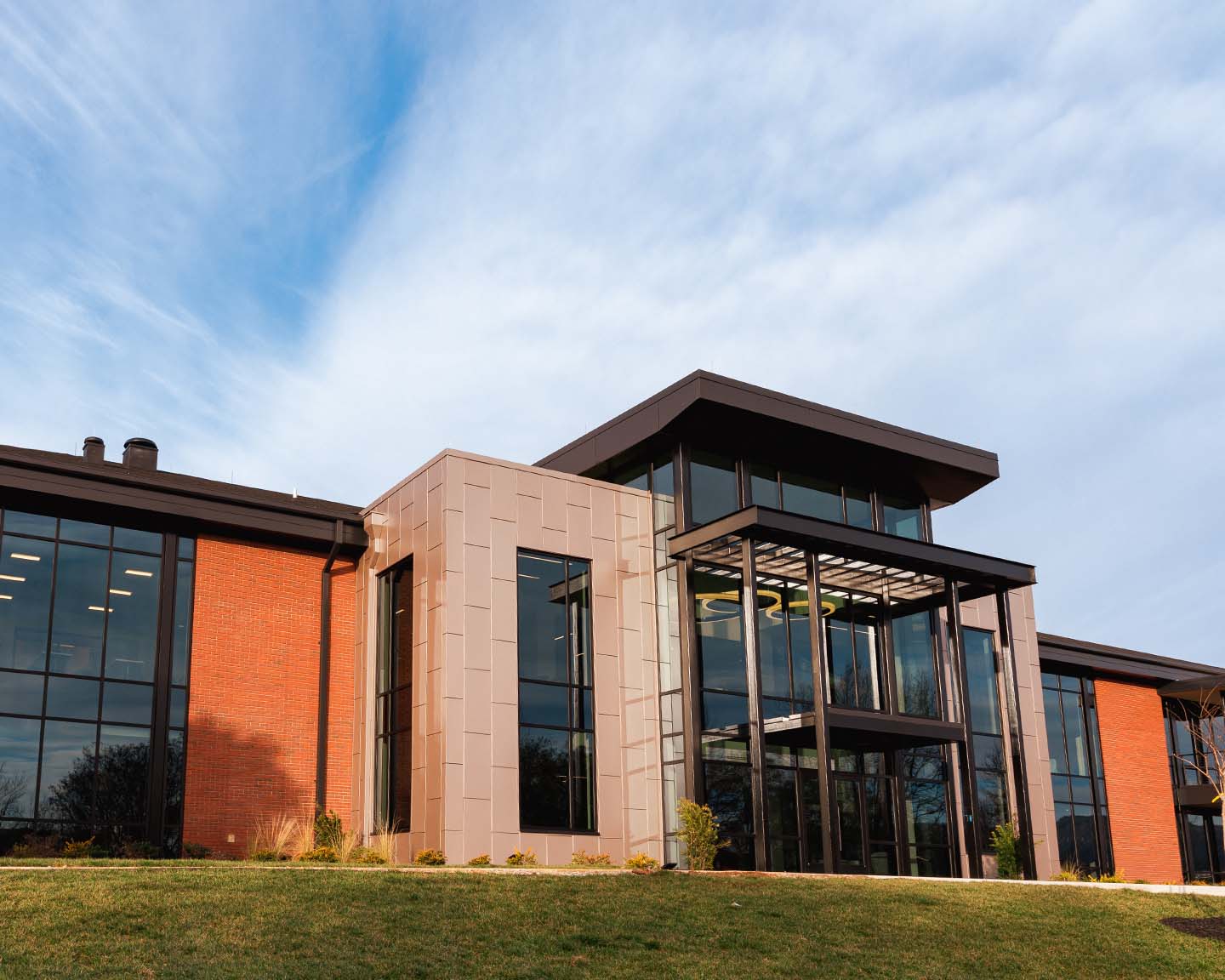BCMS University Unity in Diversity Series Brings About Discussion
Posted on: February 2, 2021
 Tigerville, SC (November 25, 2019) Joshua Gilmore, North Greenville University (NGU) Director of Community and Ministry Mobilization, led NGU students through a four-week sermon series titled, “University: Unity in Diversity.” Among the topic of diversity, Gilmore provided three conversation starters, racism, prejudice, and judgment, to the five-member panel on October 10. All three topics, Gilmore says, hinder in some way NGU’s progress to see diversity flourish more fully on campus.
Tigerville, SC (November 25, 2019) Joshua Gilmore, North Greenville University (NGU) Director of Community and Ministry Mobilization, led NGU students through a four-week sermon series titled, “University: Unity in Diversity.” Among the topic of diversity, Gilmore provided three conversation starters, racism, prejudice, and judgment, to the five-member panel on October 10. All three topics, Gilmore says, hinder in some way NGU’s progress to see diversity flourish more fully on campus.
The panel included Gilmore and four prominent Christian leaders within the South Carolina Baptist Convention (SCBC). The panel consisted of Stephen Splawn (SCBC evangelist), Charlie Buitrago (Newspring Church worship leader), Nicole Gilmore (Gilmore’s wife) and Alex Sands (Pastor at Kingdom Life Church and current SCBC president). All five influencers took on the task of answering NGU students’ pressing questions related to racism and prejudice.
The first question asked of the panel was, “How has racism, prejudice, or judgment affected your life?” Splawn answered saying that the question is both historical and personal. He explained that people of different historical backgrounds have varied perspectives on what racism is to them. Everyone has a different experience depending on their upbringing. This uniqueness makes it personal. “Feelings towards racism originate from their history with it,” he said. He recounted the horrible ways in which racism has personally affected his life and ministry.
Another point Splawn mentioned in response to the question about justice, “justice cannot impact society until it impacts you,” he said.
He explained that some mistakenly think that justice can only be carried out on the governmental level; but, he said justice is something that begins with each individual.
“To take any steps forward in ending racism and prejudice, we must first internalize Christ’s gospel message and practice justice within our society.”
Joshua David Stafford (expected ’23), a freshman from Cleveland, GA, was in attendance for the panel discussion. He reflects, “If I am claiming to be Christian and neglect the commitment it takes to live justice out day by day, then I only perpetuate the problems at hand.”
Another question asked of the panel was, “What has been helpful with bringing unity in diversity?” Nicole Gilmore responded that society needs to assume that it isn’t past harboring racism or prejudice.
“Pretending like there are no racist people or ignoring them is not helping anyone. When individuals assume that racism is no longer present, it devalues the people who are experiencing it daily. Just because our culture at NGU seems like it couldn’t be racist doesn’t mean that it doesn’t exist here or even elsewhere,” she said. “While we may say that we aren’t racist, there is no guarantee that we are not ourselves ignorantly offending ‘our neighbor’ by saying or doing certain things.”
After reflecting on the panel discussion, Stafford concluded that there are a couple of significant ways that we can posture our hearts to be more productive in the battle against racism and prejudice.
“First, we can choose to be an ‘anti-racist’ and not just a ‘non-racist’. Many of us would classify ourselves as a non-racist, which seems like a good thing. However, I now wonder, is being a non-racist good enough?”
Stafford referenced Splawn’s comment that being a non-racist is personally not agreeing with racist ideals and yet not doing anything about them.
“I have seen how complacency has infected our society and disabled us from effectively speaking out against racism. To be anti-racist is to take it a step further and to actively work to put an end to racism and prejudice in some way,” said Stafford. He says this might look like intentionally standing up for those experiencing racism or by choosing to no longer tolerate racist comments that people make around us.
Secondly, Stafford says, “We must realize that racism is a heart issue. It’s one that has to be dealt with internally and from a place of humility. If I can impact one person and positively change his or her perspective on those who are different from them, then they can turn and change someone else’s heart, too.”
Stafford believes that too many people are seeking out arguments and not answers and trying to win a fight rather than trying to win people to Christ with the gospel message. He is unsure of where to start to help end this problem.
“Many of us could be coming from a place of ignorance towards how racism is still present today. However, day in and day out, people continue to be hurt by racist comments and are negatively affected by the deeply ingrained, prejudicial, sinful thoughts and actions of others,” he said.
To truly empathize with people experiencing racism, he says we need to first be a part of their lives.
Stafford said when he asked Splawn off-stage how NGU students can begin to break down barriers of racism and prejudice, he responded, “Symbolic gestures do not equal symbolic change.”
Stafford believes Splawn was saying that we must be genuine with our actions and words to create genuine change in society. As Christians seeking to change hearts, we must live what the Bible teaches in John 13:34. “A new commandment I give to you, that you love one another: just as I have loved you, you also are to love one another.”
Stafford says beginning every conversation from a gospel-centered posture will allow the love of Christ to penetrate hearts and create actual change. We share the same blood. We must share the same Savior. Unity in Diversity is God’s heart. Unity must be our heart’s desire too.
Photo: From left: Stephen Splawn (SCBC evangelist), Charlie Buitrago (Newspring Church worship leader), Nicole Gilmore (Director of Community and Ministry Mobilization Joshua Gilmore’s wife) and Alex Sands (Pastor at Kingdom Life Church and current SCBC president) served on a NGU BCM panel in sermon series on “University: Unity in Diversity.”




